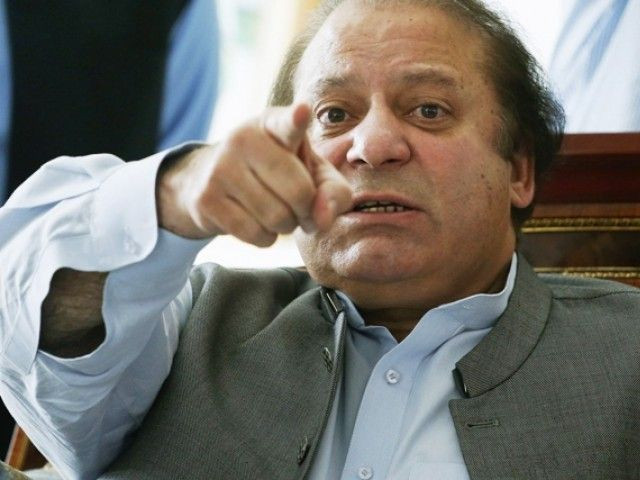Meet The New Boss, Same As The Old Boss: Who Is Nawaz Sharif, Pakistan’s New Leader?

Pakistan’s Nawaz Sharif is a very well-known figure in the South Asian nation that is on the verge of giving his party a majority in parliamentary elections, which would make him the next prime minister.
As head of Pakistan’s Muslim League (PML-N) party, the billionaire Sharif previously served as prime minister in two separate terms – a third stay in office will set a new record.
Prominent foreign leaders, including Indian Prime Minister Manmohan Singh and U.S. President Barack Obama, have already congratulated Pakistan for transitioning from one elected civilian government to another for the first time in its 60-year history.
But Sharif will have his work cut out for him -- Pakistan faces a multitude of overwhelming problems, including a faltering economy, frequent power outages, endless sectarian violence, deeply entrenched political corruption and a potent Islamic insurgency that killed scores of people during the election.
But who is this man who is taking over volatile, strategically important, nuclear-armed Pakistan?
Born to a prominent industrialist family in the city of Lahore in 1949, Sharif served as finance minister and then chief minister of Punjab province from 1985 to 1990 under then-military dictator General Zia ul-Haq. Sharif, praised for encouraging development projects in Punjab, became prime minister for the first time in 1990-1993, and again from 1997-1999. Perhaps the highlight of his second term in office was his order in 1998 for the country’s first nuclear tests.
Sharif’s last term as prime minister ended when Gen. Pervez Musharraf staged a military coup, sending Sharif to exile in Saudi Arabia.
However, prior to his journey to the Middle Eastern oil kingdom, Sharif endured a harrowing ordeal in the wake of his ousting from power in Islamabad. Musharraf ordered his arrest – Sharif was eventually given a life prison sentence for “hijacking” and “terrorism.” He was also convicted of corruption and banned from engaging in political activities for life (such “life sentences” in Pakistan are rather brief affairs).
Reportedly, Sharif was saved by his wealthy and powerful friends in Riyadh, who made a deal with the Pakistani military under which Sharif and 40 members of his family would be given exile in the kingdom.
But Sharif always plotted his return to Pakistan – fulfilling his wish by 2007, just prior to a new round of elections, following Musharraf’s departure.
Outside of politics, Sharif amassed his huge wealth largely through his ownership of steel mill conglomerate, the Ittefaq Group.
According to Daily Pakistan, Sharif’s family own assets estimated at a minimum $1.4 billion – apparently generated by their interests in steelmaking and paper mill businesses as well as land in Pakistan, Saudi Arabia and the Middle East -- making them the fourth-wealthiest clan in the country. Sharif also owns a bewildering array of luxurious properties in Pakistan as well as stakes in companies from Lahore to London.
Sharif is viewed as a political conservative with a very pro-business attitude.
"Our political philosophy revolves around economic progress," he said, according to BBC.
"If a country is economically strong, it is able to solve all the problems."
Sharif, who has criticized U.S. policy in Pakistan and Afghanistan (particularly drone missile attacks along the border), is reportedly interested in setting up talks with the Pakistan Taliban – the outlawed Tehrik-i-Taliban Pakistan (TTP) – in hopes of ending the sectarian violence in the country.
He also wants the U.S. to guarantee that its forces will be withdrawn from Afghanistan by the end of next year.
“Drones are indeed a challenge to our sovereignty. Of course we have taken this matter up very seriously and also spoken to the Americans during our meetings,” he told foreign reporters, according to the Pakistan Tribune newspaper.
“This is a very important issue and our concern must be understood properly. We will sit with our American friends and we will certainly talk to them on this issue.”
He added, in a hopeful tone: “I think we have good relations with the United States of America. We certainly have to listen to each other. If there are concerns on either side, I think we should address those concerns and strengthen this relationship.”
“We will facilitate the Americans as far as the withdrawal is concerned. American troops are being withdrawn in 2014, and we will extend full support to them and we will see everything goes smoothly.”
© Copyright IBTimes 2024. All rights reserved.





















